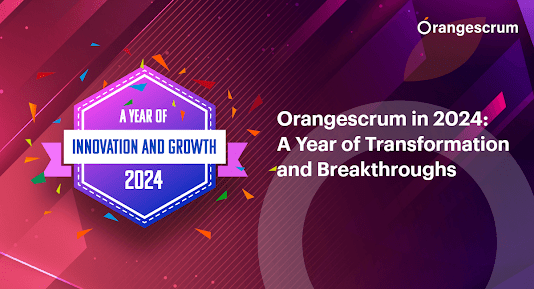As we bid farewell to 2024, it’s time to reflect on a transformative year for Orangescrum. This year has been all about growth, innovation, and delivering powerful solutions to enhance the project management experience.
We’ve focused on cutting-edge features, performance improvements, and critical bug fixes to make your work smoother. Here's a breakdown of the major updates and achievements shaping 2024.
We Launch OConstruction: Revolutionizing Construction Project Management
As we close out 2024, Orangescrum is excited to introduce OConstruction, our latest solution designed specifically for the construction industry.
This new offering marks a significant milestone in our mission to help businesses across industries streamline their operations, enhance collaboration, and manage projects more efficiently.
OConstruction is built with the unique challenges of construction project management in mind.
From complex timelines to intricate budgeting, it provides a comprehensive platform to oversee every stage of the project lifecycle—ensuring your team stays on track, on budget, and aligned with stakeholders every step.
Key Features of OConstruction
Project Planning and Scheduling: OConstruction's intuitive planning tools help project managers break down large construction projects into manageable tasks and milestones. With built-in Gantt charts, teams can easily track progress, adjust timelines, and ensure that all tasks are completed on schedule.
Budget Management and Cost Tracking: Managing costs is crucial in construction projects. OConstruction allows users to set budgets, track expenses, and monitor financials in real time. By offering complete visibility into spending, it ensures projects stay within budget and financial risks are minimized.
Resource Allocation and Collaboration: Effective resource management is key to a successful project. OConstruction helps allocate resources efficiently and provides tools for team collaboration. Whether it’s assigning tasks, tracking equipment usage, or managing subcontractors, teams can work together seamlessly to achieve project goals.







